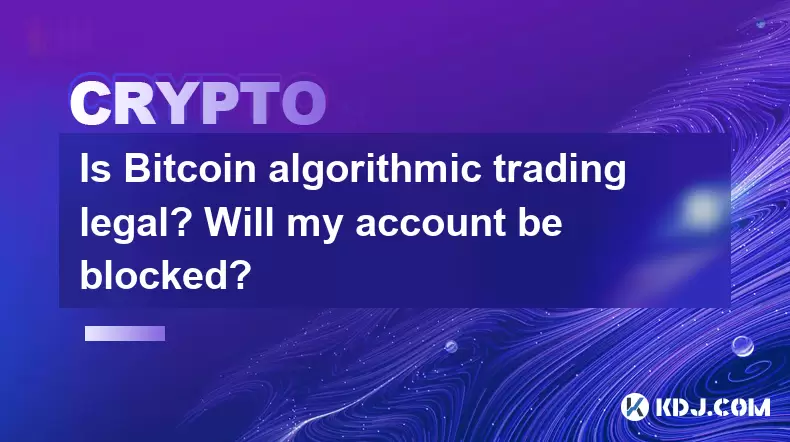-
 Bitcoin
Bitcoin $119000
-2.21% -
 Ethereum
Ethereum $4315
1.01% -
 XRP
XRP $3.151
-3.11% -
 Tether USDt
Tether USDt $0.0000
0.00% -
 BNB
BNB $808.5
-0.71% -
 Solana
Solana $175.8
-4.21% -
 USDC
USDC $0.9999
0.00% -
 Dogecoin
Dogecoin $0.2250
-3.92% -
 TRON
TRON $0.3469
1.77% -
 Cardano
Cardano $0.7818
-3.81% -
 Chainlink
Chainlink $21.47
-2.10% -
 Hyperliquid
Hyperliquid $43.30
-6.81% -
 Stellar
Stellar $0.4370
-2.84% -
 Sui
Sui $3.682
-4.40% -
 Bitcoin Cash
Bitcoin Cash $590.8
2.67% -
 Hedera
Hedera $0.2484
-5.20% -
 Ethena USDe
Ethena USDe $1.001
0.00% -
 Avalanche
Avalanche $23.10
-4.29% -
 Litecoin
Litecoin $119.2
-3.96% -
 Toncoin
Toncoin $3.409
0.90% -
 UNUS SED LEO
UNUS SED LEO $9.016
-1.29% -
 Shiba Inu
Shiba Inu $0.00001304
-3.82% -
 Uniswap
Uniswap $11.18
1.33% -
 Polkadot
Polkadot $3.913
-3.51% -
 Cronos
Cronos $0.1672
-3.08% -
 Dai
Dai $1.000
0.02% -
 Ethena
Ethena $0.7899
-4.70% -
 Bitget Token
Bitget Token $4.400
-1.23% -
 Pepe
Pepe $0.00001132
-5.93% -
 Monero
Monero $257.9
-6.44%
Is Bitcoin algorithmic trading legal? Will my account be blocked?
Bitcoin algorithmic trading legality varies by jurisdiction; always review exchange policies to avoid account blocking. Use risk management to trade safely.
May 20, 2025 at 01:00 am

Is Bitcoin algorithmic trading legal? Will my account be blocked?
The legality of Bitcoin algorithmic trading is a topic that garners significant attention within the cryptocurrency community. To provide a comprehensive understanding, it's essential to explore the legal frameworks that govern this practice, the potential risks involved, and the policies of various exchanges regarding algorithmic trading.
Understanding the legal landscape of Bitcoin algorithmic trading requires acknowledging that laws and regulations vary significantly across different jurisdictions. In many countries, trading cryptocurrencies, including Bitcoin, is legal, but the specifics of algorithmic trading can be more nuanced. In the United States, for instance, the Commodity Futures Trading Commission (CFTC) and the Securities and Exchange Commission (SEC) oversee different aspects of cryptocurrency trading. While the CFTC regulates Bitcoin as a commodity, the SEC may treat certain cryptocurrencies as securities, which can impact the legality of algorithmic trading strategies.
In the European Union, the regulatory environment is also complex. The Markets in Financial Instruments Directive (MiFID II) and the Fifth Anti-Money Laundering Directive (5AMLD) are two key pieces of legislation that influence cryptocurrency trading. These regulations aim to protect investors and prevent financial crimes, but they do not explicitly prohibit algorithmic trading of Bitcoin. However, traders must comply with reporting requirements and anti-money laundering (AML) standards.
In Asia, countries like Japan and South Korea have established clear regulations for cryptocurrency trading. Japan, for example, recognizes Bitcoin as a legal payment method and has a robust framework for cryptocurrency exchanges, including rules for algorithmic trading. South Korea, on the other hand, has implemented strict regulations to combat money laundering and protect investors, but algorithmic trading remains permissible within these guidelines.
The risk of account blocking is another critical consideration for those engaging in Bitcoin algorithmic trading. Exchanges have varying policies regarding algorithmic trading, and understanding these policies is crucial to avoid account suspension or closure.
Exchanges often implement measures to detect and prevent what they consider abusive trading practices. These measures can include monitoring for high-frequency trading, pattern recognition to identify algorithmic strategies, and setting limits on the number of orders that can be placed within a certain timeframe. If an exchange detects activity that it deems suspicious or in violation of its terms of service, it may take action against the account, including blocking it temporarily or permanently.
To mitigate the risk of account blocking, traders should familiarize themselves with the specific policies of the exchanges they use. Many exchanges provide detailed guidelines on their websites, outlining what constitutes acceptable trading behavior and what might lead to account restrictions. Reading and understanding these guidelines is essential for any trader engaging in algorithmic trading.
Some exchanges are more favorable to algorithmic trading than others. For instance, exchanges like Binance and Kraken have large user bases and sophisticated trading platforms that support algorithmic trading. These platforms often offer APIs that allow traders to develop and deploy their algorithms directly on the exchange. However, even on these platforms, traders must adhere to the exchange's rules to avoid account issues.
Implementing risk management strategies is also vital for those involved in Bitcoin algorithmic trading. This includes setting stop-loss orders to limit potential losses, diversifying trading strategies to spread risk, and regularly monitoring account activity to ensure compliance with exchange policies. By adopting these practices, traders can reduce the likelihood of their accounts being blocked.
Understanding the specifics of algorithmic trading involves recognizing that this practice encompasses a wide range of strategies, from simple automated buy/sell orders to complex machine learning algorithms. Each strategy carries its own set of risks and legal considerations. For example, high-frequency trading, which involves executing a large number of orders at very high speeds, may be subject to stricter scrutiny by regulators and exchanges due to its potential to manipulate markets.
The use of trading bots is a common approach in algorithmic trading. These bots can be programmed to execute trades based on predefined criteria, such as price movements or technical indicators. When using trading bots, it's important to ensure that they comply with the exchange's policies. Some exchanges may have specific rules about the use of bots, including restrictions on the number of orders that can be placed or the frequency of trading.
Navigating the regulatory environment requires staying informed about changes in laws and regulations that may affect algorithmic trading. Regulatory bodies around the world are continually updating their policies to address the evolving nature of cryptocurrency markets. Traders should keep abreast of these developments to ensure their trading activities remain compliant.
Engaging with the community can also provide valuable insights into the legality and best practices of Bitcoin algorithmic trading. Forums, social media groups, and online communities dedicated to cryptocurrency trading often share experiences and advice on navigating the legal and operational challenges of algorithmic trading. Participating in these discussions can help traders stay informed and make better decisions.
Frequently Asked Questions:
1. Can I use multiple exchanges for algorithmic trading, and how does this affect the legality?
Yes, you can use multiple exchanges for algorithmic trading, but you must ensure that you comply with the legal requirements and policies of each exchange. The legality of algorithmic trading can vary between exchanges, so it's important to research and understand the specific rules of each platform you use.
2. Are there any specific software tools recommended for Bitcoin algorithmic trading?
There are several software tools available for Bitcoin algorithmic trading, such as Cryptohopper, HaasOnline, and 3Commas. These tools offer various features, including backtesting, strategy development, and integration with multiple exchanges. It's important to choose a tool that aligns with your trading goals and complies with the policies of the exchanges you use.
3. How can I protect my trading algorithms from being copied or stolen?
To protect your trading algorithms, consider using secure coding practices, encrypting your code, and limiting access to your trading systems. Additionally, avoid sharing your algorithms publicly and be cautious when using third-party services that may expose your strategies.
4. What are the potential tax implications of Bitcoin algorithmic trading?
The tax implications of Bitcoin algorithmic trading can vary depending on your jurisdiction. In many countries, profits from cryptocurrency trading are subject to capital gains tax. It's advisable to consult with a tax professional to understand your specific obligations and ensure compliance with tax laws.
Disclaimer:info@kdj.com
The information provided is not trading advice. kdj.com does not assume any responsibility for any investments made based on the information provided in this article. Cryptocurrencies are highly volatile and it is highly recommended that you invest with caution after thorough research!
If you believe that the content used on this website infringes your copyright, please contact us immediately (info@kdj.com) and we will delete it promptly.
- Arc Blockchain: Circle's Layer-1 Play Amidst $428 Million Loss
- 2025-08-12 20:30:13
- XRP Price: Riding the Bull Cycle Wave or Hitting a Wall?
- 2025-08-12 20:50:12
- Cloud Mining in 2025: Chasing Passive Income and High Returns
- 2025-08-12 20:30:13
- Solana Price, Meme Coins, and 100x Gains: What's the Hype?
- 2025-08-12 20:50:12
- Japan, Bitcoin, and Treasuries: A New Era of Corporate Finance?
- 2025-08-12 18:30:12
- Bitcoin Bull Market: Decoding the Indicators for the Next Big Move
- 2025-08-12 18:30:12
Related knowledge

How to purchase Aragon (ANT)?
Aug 09,2025 at 11:56pm
Understanding Aragon (ANT) and Its PurposeAragon (ANT) is a decentralized governance token that powers the Aragon Network, a platform built on the Eth...

Where to trade Band Protocol (BAND)?
Aug 10,2025 at 11:36pm
Understanding the Role of Private Keys in Cryptocurrency WalletsIn the world of cryptocurrency, a private key is one of the most critical components o...

What is the most secure way to buy Ocean Protocol (OCEAN)?
Aug 10,2025 at 01:01pm
Understanding Ocean Protocol (OCEAN) and Its EcosystemOcean Protocol (OCEAN) is a decentralized data exchange platform built on blockchain technology,...

How to invest in Kyber Network Crystal v2 (KNC)?
Aug 12,2025 at 05:21pm
Understanding Kyber Network Crystal v2 (KNC)Kyber Network is a decentralized liquidity hub built on the Ethereum blockchain that enables instant token...

Where can I buy UMA (UMA)?
Aug 07,2025 at 06:42pm
Understanding UMA and Its Role in Decentralized FinanceUMA (Universal Market Access) is an Ethereum-based decentralized finance (DeFi) protocol design...

What exchanges offer Gnosis (GNO)?
Aug 12,2025 at 12:42pm
Overview of Gnosis (GNO) and Its Role in the Crypto EcosystemGnosis (GNO) is a decentralized prediction market platform built on the Ethereum blockcha...

How to purchase Aragon (ANT)?
Aug 09,2025 at 11:56pm
Understanding Aragon (ANT) and Its PurposeAragon (ANT) is a decentralized governance token that powers the Aragon Network, a platform built on the Eth...

Where to trade Band Protocol (BAND)?
Aug 10,2025 at 11:36pm
Understanding the Role of Private Keys in Cryptocurrency WalletsIn the world of cryptocurrency, a private key is one of the most critical components o...

What is the most secure way to buy Ocean Protocol (OCEAN)?
Aug 10,2025 at 01:01pm
Understanding Ocean Protocol (OCEAN) and Its EcosystemOcean Protocol (OCEAN) is a decentralized data exchange platform built on blockchain technology,...

How to invest in Kyber Network Crystal v2 (KNC)?
Aug 12,2025 at 05:21pm
Understanding Kyber Network Crystal v2 (KNC)Kyber Network is a decentralized liquidity hub built on the Ethereum blockchain that enables instant token...

Where can I buy UMA (UMA)?
Aug 07,2025 at 06:42pm
Understanding UMA and Its Role in Decentralized FinanceUMA (Universal Market Access) is an Ethereum-based decentralized finance (DeFi) protocol design...

What exchanges offer Gnosis (GNO)?
Aug 12,2025 at 12:42pm
Overview of Gnosis (GNO) and Its Role in the Crypto EcosystemGnosis (GNO) is a decentralized prediction market platform built on the Ethereum blockcha...
See all articles

























































































